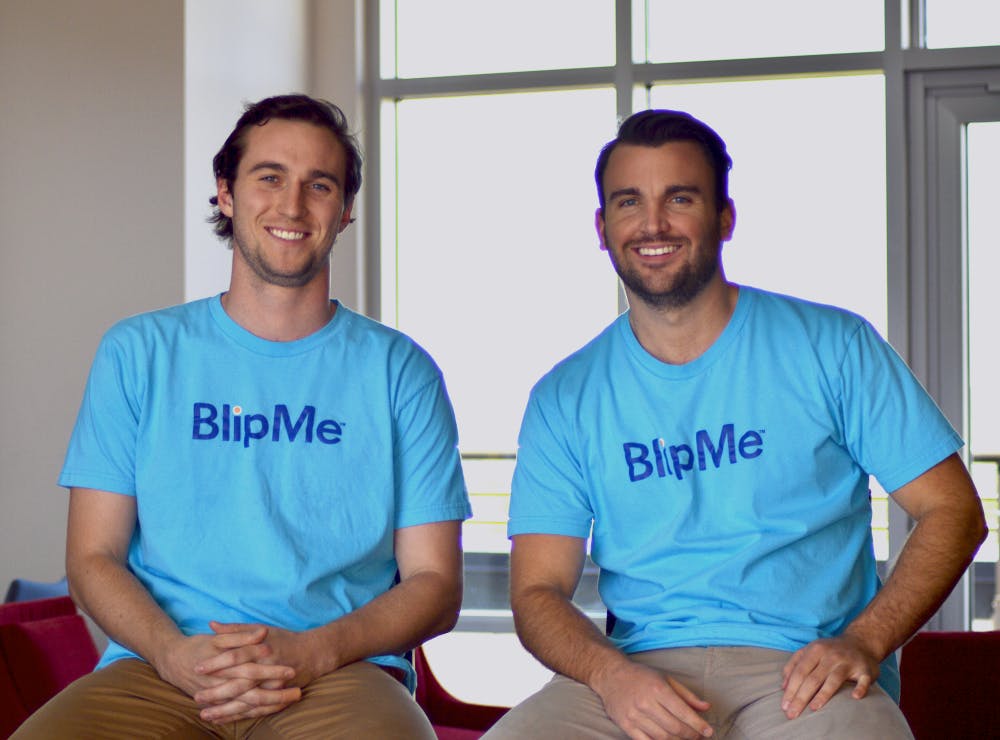Everybody has that one friend who goes off the grid every now and again, doesn’t answer their phone very often or wanders off after a night out. While iPhone users can activate the Find My Friends feature and share the location of their phone indefinitely, BlipMe app co-founders and longtime friends Michael Zulauf and Ricky McMahon feel their app is more personal and interactive than the Apple feature.
“People need an easy, flexible way of sharing [their location],” McMahon said. “Texting works sometimes, but there’s people who don’t respond.”
BlipMe is a free app that allows users to build a friends list and then send and receive “blips.” Blips are sent to friends with time limits that also post the user’s location. They can be sent for five minutes up to 24 hours.
The men have also taken on a personal marketing approach. Zulauf visited chapter meetings of sororities at Elon to share the app and promote a special incentive—for every user that registered with a chapter-specific code, $1 would be added to a raffle that a user from that organization would win at the end of the night. Elon students can posts blips about flighnights at The Oak House, brunches at West End Terrace or other on-campus events. Zulauf also extended an email to new users giving his personal contact information for any questions and comments users wanted to direct toward the company.
“Spotlight” is another BlipMe feature, similar to “My Story” on Snapchat, where a user posts a blip of their location that updates as they move and stays public for all friends to view for 24 hours.
The app, which was released to the App Store in May 2015, is based out of Chapel Hill and works to solve two main issues Zulauf and McMahon feel college students have when they go out at night: not knowing where their friends may be going out and keeping track of those friends who like to wander away or sometimes simply go missing for a few hours.
As location sharing became more relevant in the technology world and people became more interested in messaging-based apps, the two founders began the research and development of BlipMe.
“We did all the idea development and then partnered with Faction Studio in Brooklyn,” McMahon said. “They cater to startups.”
McMahon believes BlipMe could be a step toward safer nights out, as posting a blip for the walk home can alert friends of where a user is.
When a user sends a blip, they can attach a message. McMahon feels it is the message and the ability to share location with intention and context that sets BlipMe apart from Find My Friends. The founders realize the privacy concerns attached when it comes to sharing something as personal as one’s location.
Even with the personalized marketing and messaging features the app provides, some are still hesitant to download it, or don’t see the use. Especially with a startup app, recruiting users and troubleshooting is a major part of the day-to-day.
“I haven’t used it because it’s basically the same thing as Find My Friends, which is already on the iPhone,” said sophomore Melissa Purgert.
In the way that Snapchat users send selfies with filters, drawings or text to share their message, McMahon hopes the same type of usage will occur with BlipMe. Users will be able to send their location intentionally and to specific people with personalized messages.
“We look at location as context to a message,” McMahon said. “The best analogy I have is before Snapchat no one just sent selfies. Snapchat is a messaging app with photos as context. Someone doesn’t know you’re sharing on Find My Friends. There’s no context.”


